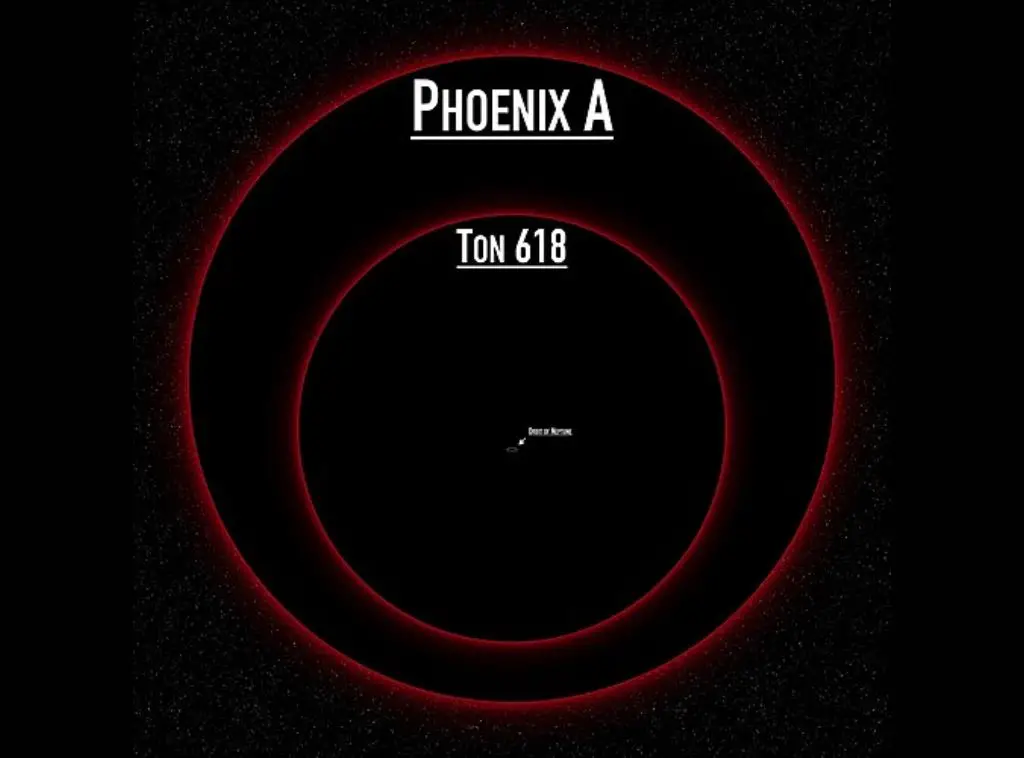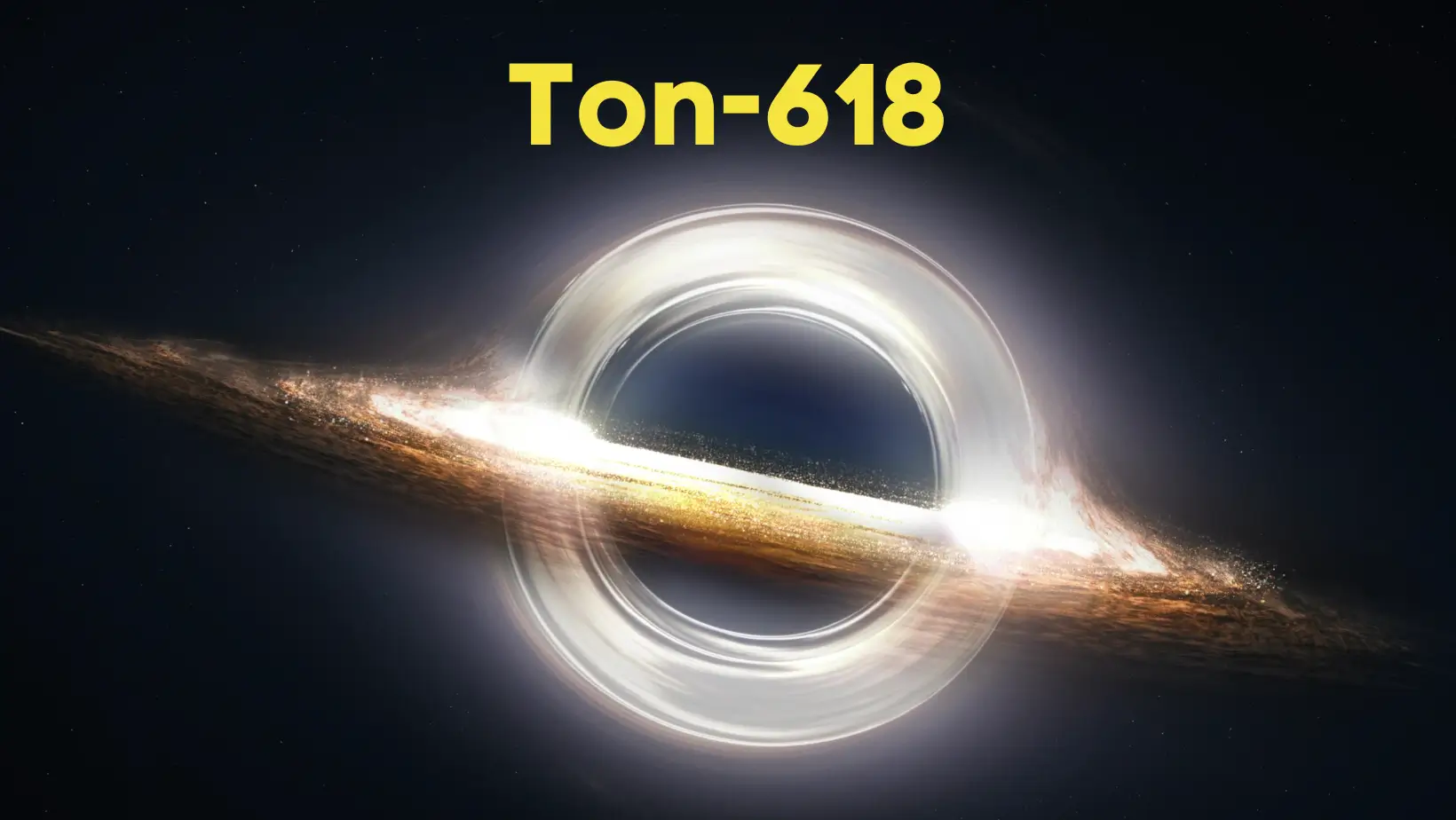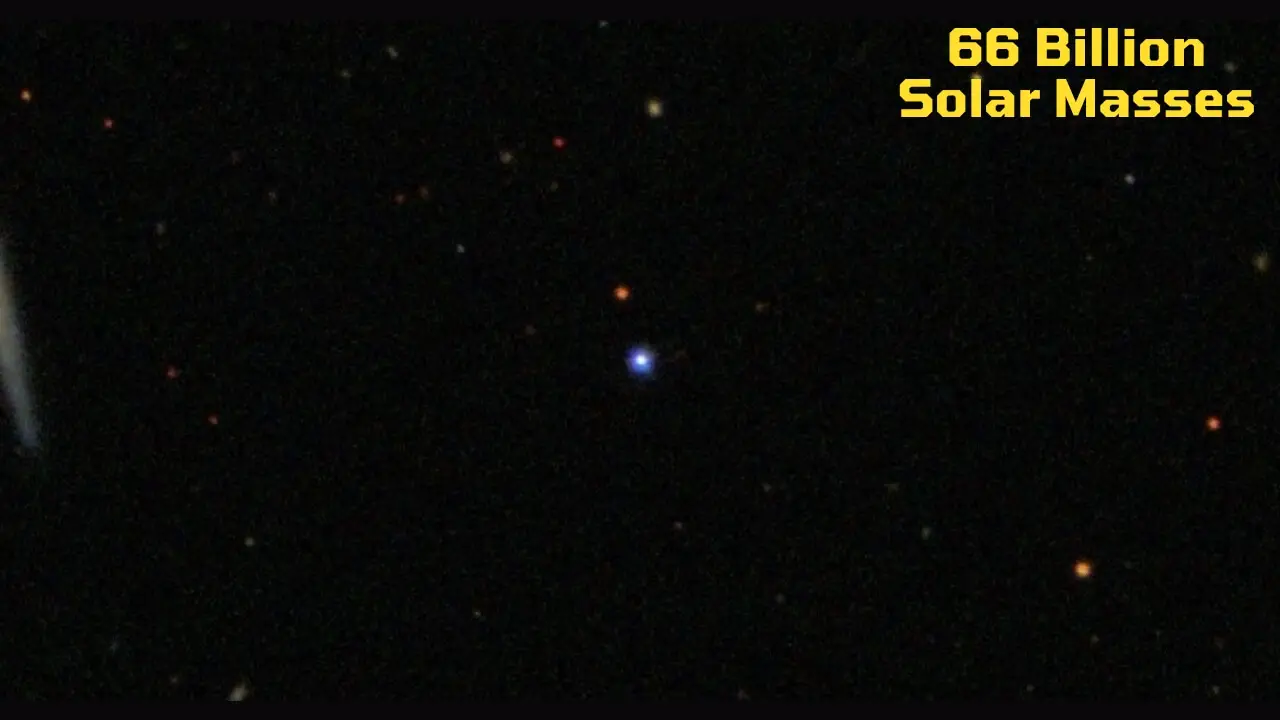The TON 618 black hole is a supermassive black hole located at the heart of Tonantzintla 618 (TON 618), which is a hyper-luminous and radio-loud quasar located near the edges of constellations Canes Venatici and Coma Berenices. It is about 18.2 Billion light years distant from our Earth.
The TON 618 black hole is a behemoth with a mass of about 66 billion suns and a Schwarzchild radius of 1,300 AU (an astronomical unit equal to the distance of Earth from the Sun). Here, we gathered information about how heavy the TON 618 black hole is, how the mass of a black hole is determined, and the mass comparison of the TON 618 black hole with some other black holes.
How Heavy Is TON 618 Black Hole?
The Ton 618 black hole is an incredibly heavy and dense object in the Universe. It has been estimated to be as heavy as 66 billion solar masses. While one solar mass is up to 2 × 10³⁰ kilograms (4.4 × 10³⁰ lbs), equal to 333,000 times the mass of the earth. The TON 618 black hole is so big that a beam of light would take weeks to cross its shadow.
With 66 billion solar masses, the TON 618 black hole is heavier than the combined mass of all the stars in our Milky Way Galaxy, which are estimated to have a combined mass of 64 billion solar masses. It is estimated as 15,300 times heavier than Sagittarius A*, the central black hole of our Milky Way Galaxy.
Also Read: Ton 6188 vs Phoenix A* Black Hole.
The diameter of the TON 618 black hole is estimated as 390 billion km (242 billion miles) with a Schwarzchild radius of 1,300 AU. This diameter is greater than 40 times the distance from the Sun to Neptune.
With such a huge size and mass, the TON 618 black hole is still not the biggest ever known black hole in our universe. The Phoenix A black hole holds this record, with a mass of 100 billion solar masses and a diameter of 590 billion km.
🔬 Subscribe to SciMail
Get the latest science discoveries straight to your inbox!
How Is The Mass Of A Black Hole Determined?
It is not easy to estimate the mass of a black hole because black holes have such a strong gravity that even light can not escape it. Scientists measure the gravitational pull a black hole exerts on the surrounding objects and then calculate its mass from it.
Also Read: Phoenix A: The biggest black hole ever discovered.
It is done through various methods; such as tracking the motion of stars and gas in the vicinity of a black hole, because stars and gas often orbit around a black hole. Observation of changes in light from distant galaxies is another method. Einstein’s Theory of General Relativity is also used to find out how much space-time is bent around a black hole indicating its mass. Scientists can calculate the accurate mass and size of a given black hole by combining all the observations with mathematical models and simulations.

For example, let’s suppose a sun-like star orbiting a black hole at a speed measured to be 117 miles per second. Suppose that the diameter of its orbit is measured to be equal to the distance of Mercury from the sun. It means that the star completes one orbit around the black hole in 12 days. When all these calculations are applied to the laws of gravity, it tells us that the mass of the assumed black hole is ten times greater than the sun.
Mass Comparison Of TON 618 With Other Black Holes
In the following table, the mass of the TON 618 black hole is compared with some other black holes:
| S.No | Black Hole Name | Mass | Size (diameter of Event Horizon) |
| 1 | TON 618 black hole | 66 billion solar masses | 390 billion km |
| 2 | Phoenix A black hole | 100 billion solar masses | 590 billion km |
| 3 | Abell 1201 BCG black hole | 32.7 billion solar masses | 192.9 billion km (1290 AU) |
| 4 | M87’s black hole | 5.4 billion solar masses | 18 billion km |
| 5 | Sagittarius A* black hole | 4.3 million solar masses | 26 million km |



Leave a Reply